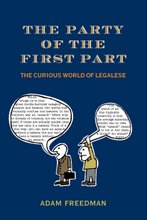Goods and Chattels
It's one of those phrases with legal overtones but no clear definition. Traditionally, the phrase is taken to refer to every type of personal property except a freehold title. It can even include interests in land, such a lease.
"Good" is an English word, related to the Old Norse gothr. "Chattel" comes from the Old French chatel, and ultimately from the Latin catalla, which literally means cattle. Somehow, the French came to use "cattle" to refer to any moveable good; which is an odd usage, given that cattle are notoriously difficult to move. Medieval "law French" pleadings from England refer to "biens et chateaux." As so often happened with these old expressions, English lawyers decided to translate half of the phrase (thus changing biens to good), but leaving the other half foreign.
Shakespeare, who as I have commented elsewhere, knew his law, has the character Petruchio (Taming of the Shrew) exclaim: "I will be master of what is mine own. She is my goods, my chattels, she is my house."

1 comment:
actual information, all information which is helpful given once for all maximum engine power capacity | the price of motorcycles and cars | Latest Price And Specification | Minimalist House Interior Exterior
Post a Comment